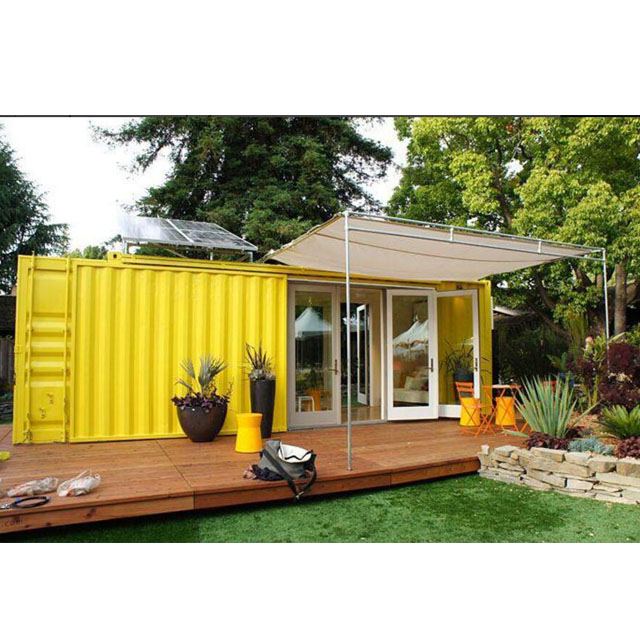How much does it cost to build a shipping container house?
Embarking on the journey of constructing a shipping container house is an exciting venture that combines innovation, sustainability, and cost-effectiveness. In this comprehensive guide, we'll delve into the nitty-gritty details of how much it truly costs to build a shipping container house. Our goal is to provide you with an insightful breakdown that goes beyond the surface, helping you make informed decisions and navigate the exciting realm of container architecture.

What Drives the Cost?
The cost of building a shipping container house is influenced by various factors, each playing a crucial role in determining the overall expenditure. These factors include:
Container Acquisition
The foundation of your sea container house lies in the containers themselves. The cost of acquiring shipping containers depends on their size, condition, and specifications. Opting for new or refurbished containers will impact your budget differently, and it's essential to make an informed decision based on your project requirements.
Site Preparation
Before laying the first container, adequate site preparation is vital. Expenses in this phase include land clearing, leveling, and foundation preparation. The topography of your chosen site and the extent of work required will influence these costs significantly.
Breaking Down the Costs
1. Design and Planning
Investing in a well-thought-out design is paramount. Architectural services, blueprints, and structural engineering costs fall under this category. Collaborating with professionals ensures a design that aligns with both your vision and local building regulations.
2. Container Modification
Turning a cold, steel container into a cozy living space demands skillful modification. Costs here include insulation, ventilation, plumbing, and electrical work. While it's tempting to cut corners, investing in quality modifications ensures long-term comfort and functionality.
3. Assembly and Construction
The assembly process involves connecting containers, creating openings for doors and windows, and reinforcing structural integrity. Labor costs, equipment rental, and construction materials contribute to this phase's expenses.
4. Interior Finishes
The interior design and finishing touches add a personalized touch to your container home. Costs vary based on your preferences for flooring, cabinetry, fixtures, and appliances. Striking a balance between aesthetics and budget is key during this stage.
5. Utilities Installation
Ensuring your container home is fully functional requires the installation of utilities such as plumbing, electricity, and heating/cooling systems. Working with experienced professionals guarantees a seamless integration of these essential components.
Factors Influencing Costs
Location Matters
Construction costs can vary based on your geographic location. Factors such as local labor rates, building codes, and permit fees contribute to these regional variations.
Customization Complexity
The more intricate your design, the higher the costs. Balancing your vision with practicality is crucial to managing expenses effectively.
Material Selection
From eco-friendly insulation options to high-end fixtures, the materials you choose impact costs. Prioritizing quality over quantity ensures a durable and sustainable container home.
Conclusion
In conclusion, the cost of building a shipping prefab container house is a multifaceted consideration that involves numerous variables. By understanding these factors and making informed choices at each stage, you can embark on this innovative housing journey with confidence.

